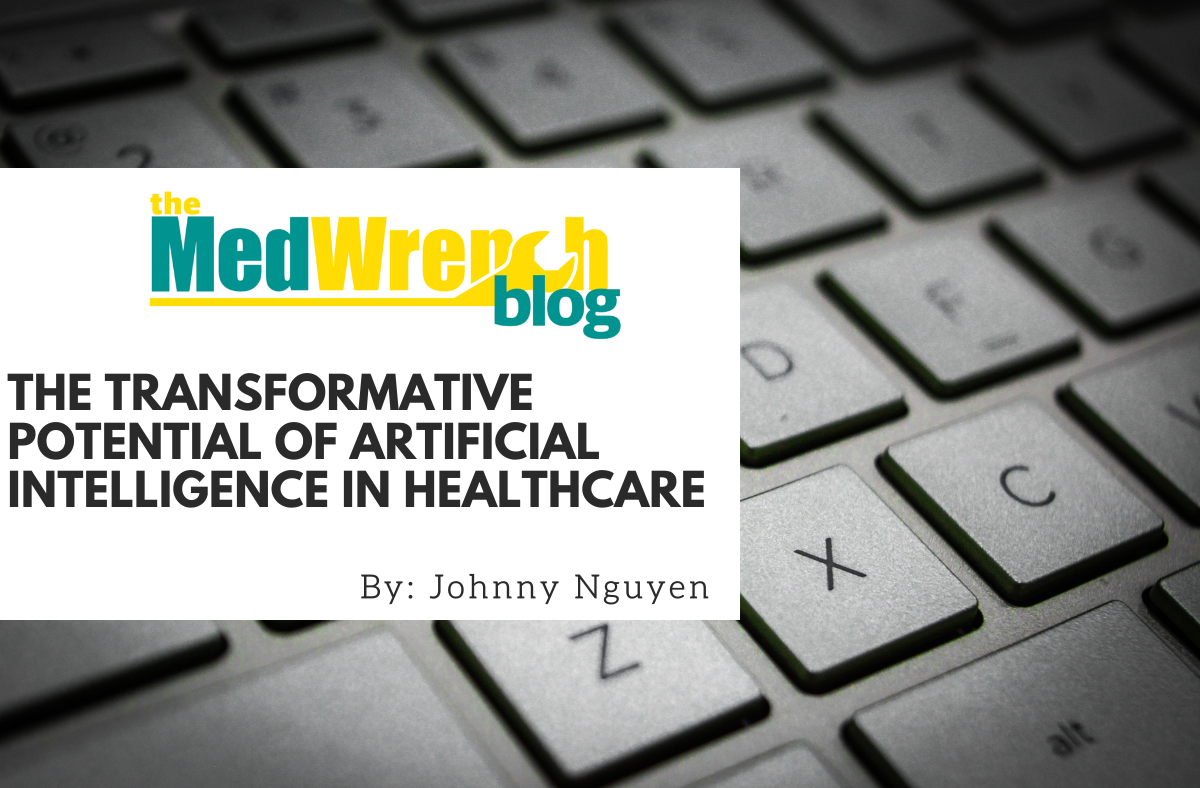
.1. Unveiling AI’s Transformative Potential in Modern Medicine.1. Unveiling AI’s Transformative Potential in Modern Medicine Artificial Intelligence (AI) is revolutionizing the healthcare industry, offering transformative potential to improve patient care, streamline processes, and optimize outcomes. Diagnostics and Prognostics: AI algorithms analyze vast amounts of medical data to identify patterns and make accurate diagnoses. Machine learning and deep learning models can diagnose diseases at an early stage, predict disease progression, and provide personalized treatment plans. Image Analysis and Radiology: AI-powered image recognition systems enhance the accuracy and efficiency of medical imaging. They can detect subtle abnormalities on scans, such as tumors or fractures, that may be missed by human eyes. Drug Discovery and Development: AI accelerates the drug discovery process by identifying potential target molecules and predicting compound interactions. Machine learning models optimize clinical trials by selecting patients most likely to benefit from treatments. Patient Monitoring and Remote Care: Wearable devices and sensors integrate with AI platforms to monitor patients’ health metrics remotely. This enables early detection of health issues and proactive management of chronic conditions. Precision Medicine and Personalized Treatment: AI analyzes individual patient data, including genetic information and medical history, to personalize treatment plans. This approach optimizes therapy, reduces side effects, and improves patient outcomes. Decision Support and Clinical Reasoning: AI systems provide clinicians with real-time decision support, assisting them in making informed choices based on evidence-based guidelines and patient-specific data. Benefits of AI in Medicine: * Improved patient care: Earlier diagnosis, more accurate prognoses, and personalized treatments enhance overall health outcomes. * Streamlined processes: AI automates tasks such as data entry and records management, freeing up healthcare professionals for more patient-centered activities. * Cost reduction: AI can reduce healthcare costs by optimizing treatment plans, reducing hospital stays, and improving efficiency. * Increased access to healthcare: Remote patient monitoring and AI-powered diagnostics facilitate access to medical care in remote or underserved areas. Challenges and Future Directions: * Data privacy and ethics: Ensuring the secure and responsible use of patient data is crucial. * Algorithm bias: AI models must be developed and trained with unbiased data to avoid perpetuating existing health disparities. * Integration into healthcare systems: Effective adoption of AI requires seamless integration with existing medical practices and workflows. Conclusion: AI is transforming modern medicine by enhancing diagnostics, optimizing treatments, streamlining processes, and improving patient care. As the field continues to evolve, the transformative potential of AI in healthcare is boundless, promising a future where personalized and efficient medical interventions empower better health outcomes for all.
Posted inNews